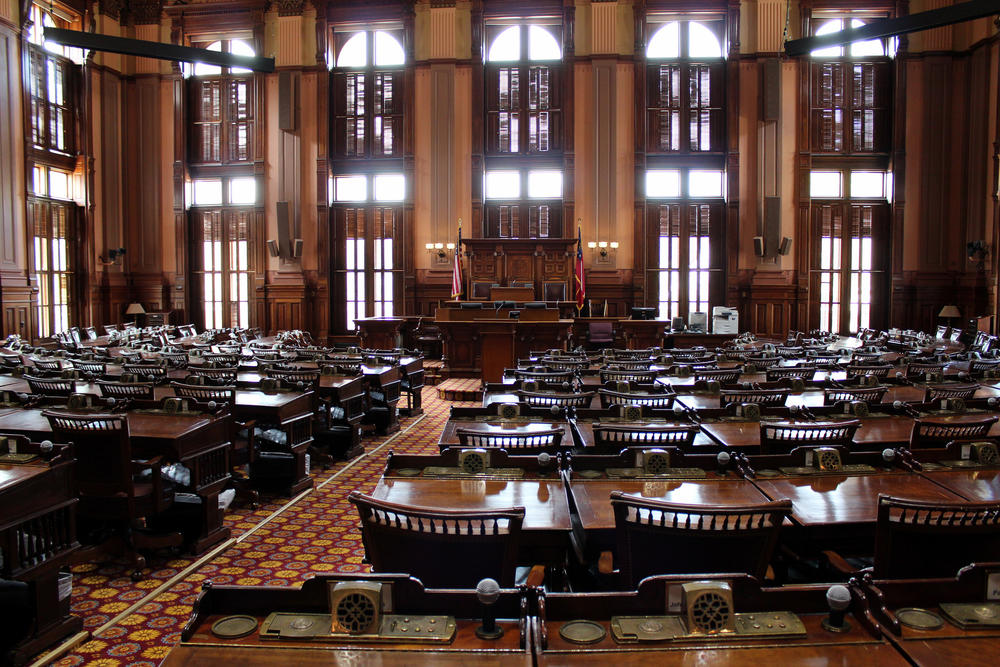Section Branding
Header Content
Questions Linger About Opportunity School District Plan
Primary Content
Gov. Nathan Deal’s plan to improve Georgia’s failing schools faces one final hurdle: passage of an amendment to the state constitution.
Georgians will vote on that in November. In the meantime, education policy analysts still have questions about the proposal.
Passage of SB 133 in 2015 got the ball rolling on the proposal, which would create a statewide school district called the Opportunity School District (OSD).
The OSD would be made up of schools that don’t meet the state’s standards for three years in a row, would take in 20 schools a year with a total capacity of 100 schools, and would be run by a state superintendent appointed by the governor.
“It’s all about being able to create a mechanism that puts a focus on these schools. I think that’s what’s most exciting,” said Michael O’Sullivan, Director of StudentsFirst Georgia, advocacy group that supports the takeover plan.
That focus could come in the form of interventions like leadership and curriculum changes, but it could also come in the form of school closures or conversions to charter schools, which could be run by for-profit charter operators.
Still, O’Sullivan said it’s not the specific interventions that will be the secret to the plan's success.
“The extra attention that a school on this list is going to get is what is going to make this successful more than anything else,” he said.
“Turning around troubled schools is really really hard work, and I don’t think that there’s a magic bullet,” said Claire Suggs, Senior Education Policy Analyst with the Georgia Budget and Policy Institute.
When we spoke recently, she was more skeptical of the OSD plan. Her main concern was whether it would do enough to address outside-the-classroom issues in the schools that qualify for takeover.
“These are schools that are high poverty and high minority, and in some cases they’ve been isolated for a number of years, or they may be in neighborhoods that have a lot of challenges,” Suggs said.
She also worried that students and their families wouldn't have enough input.
“You don’t want them to be voiceless in this process,” she said.
Dana Rickman, Policy and Research Director for the Georgia Partnership for Excellence in Education, thinks that's an issue too.
“I think it will fall upon whoever the state superintendent is to really rely on that community engagement,” she said.
She pointed out that a school takeover would only happen after a community hearing but said that the OSD plan wasn't explicitly clear about how community input would continue after that.
“Because you don’t want to be overly prescriptive,” Rickman said. “Every school will have a different challenge, different environment. Whoever the superintendent and school leaders are need that flexibility to be able to go in there and figure out what are the barriers, what do they need to do.”
In the end, she said the success or failure of the plan hinges on that kind of flexibility.
“Since the legislation is so vague, a lot of it really has to do in how they implement it in terms of if it turns out to ultimately be a good thing or not for Georgia students,” Rickman said.
That’s essentially what Georgia voters will decide in November: whether or not they want to give that implementation power to the OSD superintendent.
In the meantime, Rickman and Michael O'Sullivan from StudentsFirst Georgia said the OSD plan has already had an impact by making districts pay more attention to their schools that would qualify for takeover.
“And for the first time ever, I mean ever, in a legislative hearing, I started hearing people talk about the impact of poverty and the different challenges that poverty and class and socioeconomic struggles have on education,” Rickman said.
Rickman said she doesn’t expect the OSD to come up explicitly in this year’s legislative session, but that doesn’t mean education won’t be a hot topic.
Gov. Deal’s Education Reform Commission has handed down a number of school improvement recommendations for legislators and policy analysts to hash out in 2016.


